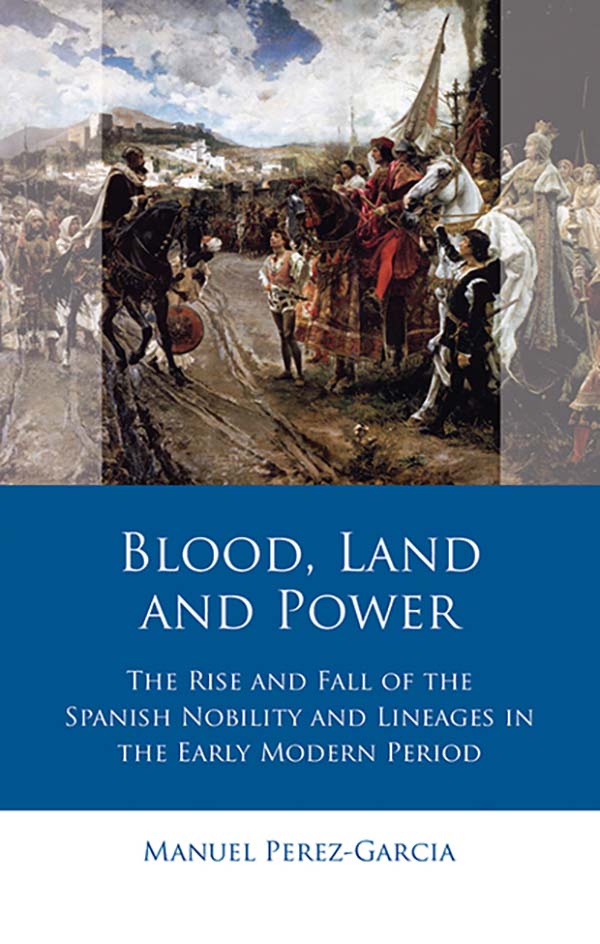Blood, Land and Power
The Rise and Fall of the Spanish Nobility and Lineages in the Early Modern Period
Author(s) Manuel Perez-Garcia
Language: English
Genre(s): History
Series: Iberian and Latin American Studies
- April 2021 · 352 pages ·216x138mm
- · Hardback - 9781786837103
- · eBook - epub - 9781786837127
OPEN ACCESS
To view Blood, Land and Power for free click on the following links:
https://www.uwp.co.uk/app/uploads/9781786836110.pdf
This monograph is also available to read on OAPEN: https://library.oapen.org/handle/20.500.12657/47859
The analysis of land management, lineage and family through the case study of early modern Spanish nobility from sixteenth to early nineteenth century is a major issue in recent historiography. It aims to shed light on how upper social classes arranged strategies to maintain their political and economic status. Rivalry and disputes between old factions and families were attached to the control and exercise of power. Blood, land management and honour were the main elements in these disputes. Honour, service to the Crown, participation in the conquest and ‘pure’ blood (Catholic affiliation) were the main features of Spanish nobility. This book analyses the origins of the entailed-estate (mayorazgo) from medieval times to early modern period, as the main element that enables us to understand the socio-economic behaviour of these families over generations. This longue durée chronology within the Braudelian methodology of the research aims to show how strategies and family networks changed over time, demonstrating a micro-history study of daily life.
ACKNOWLEDGMENTS
LIST OF FIGURES, GRAPHS AND TABLES
FOREWORD
INTRODUCTION
CHAPTER 1. LINEAGE GLORY AND HONOUR IN LATE MIDDLE AGES: CONQUEST AND CONSOLIDATION OF ECONOMIC POWER
CHAPTER 2. HONOUR AND PURITY OF BLOOD
CHAPTER 3. BUILDING A SOCIAL NETWORK THROUGH POLITICAL, SOCIAL, AND INSTITUTIONAL TIES
CHAPTER 4. FAMILY AND ENTAILED STATE (MAYORAZGO): FIRSTBORNS AS KEEPERS OF THE FAMILY’S ECONOMIC POWER
CONCLUSIONS
BIBLIOGRAPHY


